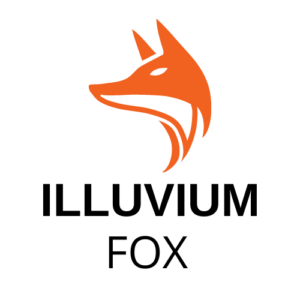Token-Driven Engagement in Web3 Gaming
In the rapidly changing realm of Web3 gaming, the integration of token-driven engagement has become essential for fostering sustainable growth. Illuvium is set to introduce its innovative Battle Pass system in mid-2025, which aims to combine elements of gamification with blockchain economics. This initiative positions the ILV token as a crucial component for retaining users and creating long-term value. By linking in-game accomplishments to the utility of tokens, Illuvium is reshaping player interactions within decentralized gaming ecosystems.
Tokenomics as a Foundation for Engagement
The ILV token serves multiple functions within Illuvium’s ecosystem, including governance, staking, and rewards for in-game achievements. Players can earn ILV by completing tasks, staking their tokens, and participating in events such as the “Leviathan No Limits” tournament, which previously caused a remarkable 71% increase in ILV’s market price within just one day. This highlights how incentives tied to tokens can have a direct impact on market dynamics. Additionally, the Illuvium Vault enhances token utility by allowing stakers to participate in the distribution of in-game revenues, creating a cycle where player engagement translates into economic involvement. The introduction of the Fuel token, which is algorithmically stabilized and linked to ETH, further bolsters this ecosystem. Fuel is necessary for various in-game transactions and purchasing ILV from liquidity pools, thereby generating consistent demand for the native token and helping to stabilize expenditures within the game. This strategy effectively reduces volatility risks and connects player activities to the overall value of ILV.
Battle Pass: Bridging Play-to-Earn and Play-to-Engage
While detailed metrics for the Battle Pass in Q3 2025 have yet to be released, its conceptual framework indicates significant potential for player engagement. The system will offer players cosmetic enhancements, entry into tournaments, and bonus rewards, all linked to the utility of ILV. For example, achievements and leaderboard standings will directly reward players with ILV, promoting competitive gameplay and encouraging sustained participation. This approach is reminiscent of successful models seen in games like Gods Unchained and Splinterlands, where event-driven token utilization has proven to stabilize revenue streams. The Battle Pass will also create a sense of urgency through limited-time missions and exclusive NFTs, which can drive user engagement by encouraging players to stake ILV for access to premium features. This scarcity strategy not only enhances token demand but also aligns with current Web3 trends that emphasize player ownership of in-game assets.
Navigating Challenges in a Competitive Market
Despite Illuvium’s innovative features, the blockchain gaming industry encountered challenges in April 2025, with the number of daily active wallets dropping to 4.8 million, marking the lowest point of the year. Nevertheless, Illuvium’s commitment to high-quality graphics, expansive open-world gameplay, and auto-battler mechanics sets it apart from less sophisticated competitors. The planned reintroduction of ILV rewards in 2025, along with the Battle Pass, indicates a strategic shift towards prioritizing quality over sheer quantity, focusing on a dedicated audience willing to invest both time and resources. However, a challenge exists in striking the right balance between monetization strategies and maintaining player interest. An overemphasis on paid cosmetic features might deter casual gamers. Yet, Illuvium’s hybrid approach—offering both free-to-play options and premium rewards—addresses this issue by appealing to various player demographics.
Long-Term Value Creation: Governance and Ecosystem Expansion
The role of the ILV token within the Illuvium DAO empowers players to influence the game’s evolution. With voting rights concerning updates, partnerships, and economic changes, players feel a sense of ownership that is vital for long-term engagement. As the ecosystem grows with the introduction of new player-versus-environment (PvE) and player-versus-player (PvP) modes, along with the anticipated Illuvium: Zero release, the utility of ILV as a governance and staking asset is expected to increase. Additionally, the implementation of a gas-free marketplace for trading in-game assets minimizes barriers, making ILV more accessible to a wider audience. This aligns with the industry’s broader trend toward user-friendly onboarding, which is essential for achieving mass adoption.
Conclusion: A Play-to-Earn Renaissance
Illuvium’s Battle Pass illustrates how token-driven strategies can enhance both player engagement and value accumulation. By integrating ILV with gameplay, governance, and economic incentives, the project addresses fundamental challenges faced by Web3 gaming, including sustainability, scalability, and user retention. Although specific data for Q3 2025 has not yet been disclosed, the foundational design and early indicators—such as the significant price increase following tournament events—point to a robust framework poised for long-term success. For investors, this represents a compelling example of how blockchain technology can transform gaming from a speculative venture into a mainstream asset class that generates real value.

